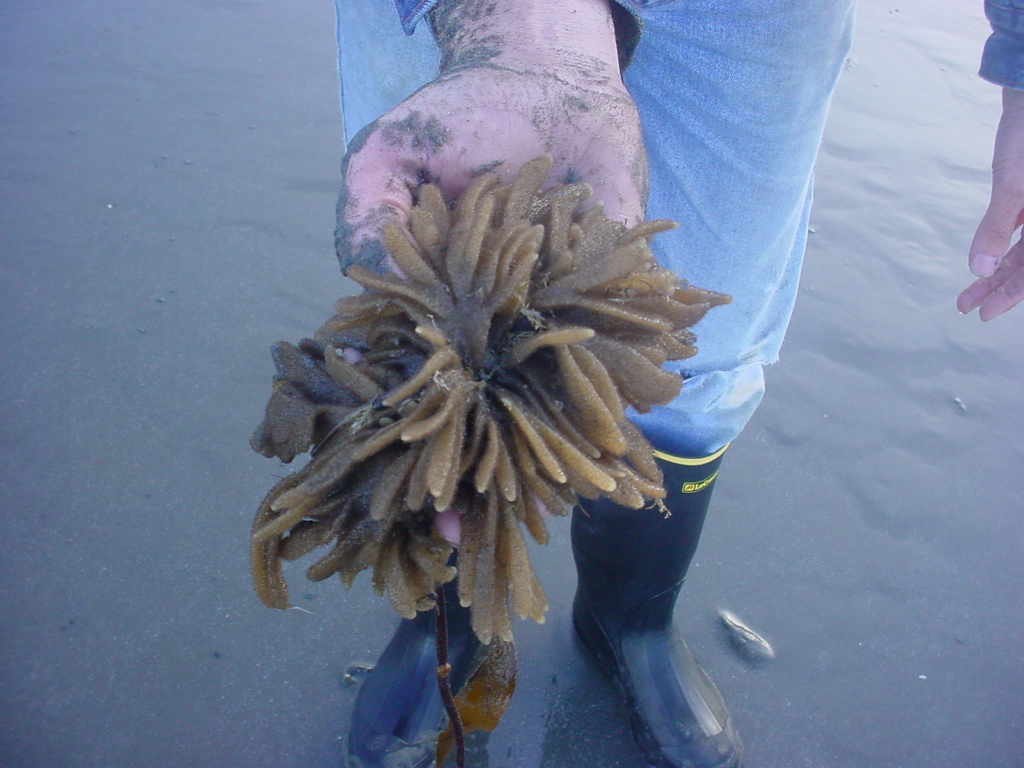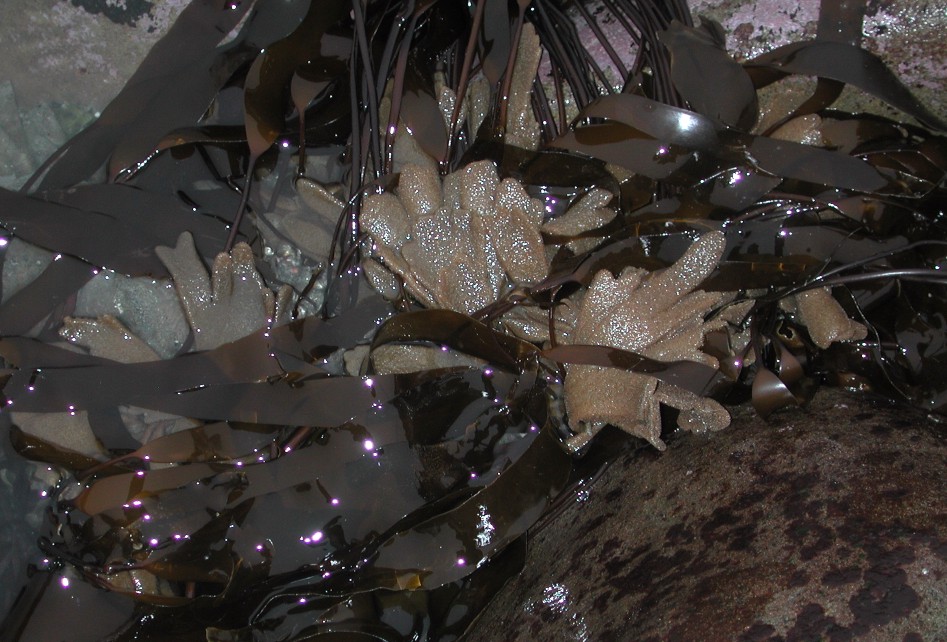Flustrellidra corniculata Smitt, 1871Common name(s): Seaweed muffs |
|
| Synonyms: Flustrellidra cervicornis, Flustrella corniculata |  |
| Phylum
Bryozoa
Class Gymnolaemata Order Ctenostomata Suborder Euctenostomata Family Flustrellidridae |
|
| Flustrellidra corniculata at Kalaloch, WA | |
| (Photo by: Dave Cowles, July 2005) | |
How to Distinguish from Similar Species: There are no similar species in this area.
Geographical Range: Alaska to Point Buchen, central CA
Depth Range:
Habitat: Attached in the lower rocky intertidal, or as sheaths on the stipes of seaweeds such as Laminaria spp. and Corallina officinalis.
Biology/Natural History: These colonies often wash ashore on exposed beaches during storms, and look a bit like seaweed.
Corniculata means "having little horns".
| Return to: | |||
| Main Page | Alphabetic Index | Systematic Index | Glossary |
References:
Dichotomous Keys:Kozloff 1987, 1996
Smith and Carlton, 1975
General References:
Brusca
and Brusca, 1978
Kozloff,
1993
Morris
et al., 1980
O'Clair
and O'Clair, 1998
Ricketts
et al., 1985
Scientific Articles:
Web sites:
General Notes and Observations: Locations, abundances, unusual behaviors:

The forked spines can be seen in this closeup photo

Flustrellidra corniculata is frequently found
growing on algae.
At Beach #4 near Kalaloch many can be found growing on Laminaria
holdfasts such as this example.
Photo by Dave Cowles July 2008
Authors and Editors of Page:
Dave Cowles (2005): Created original page